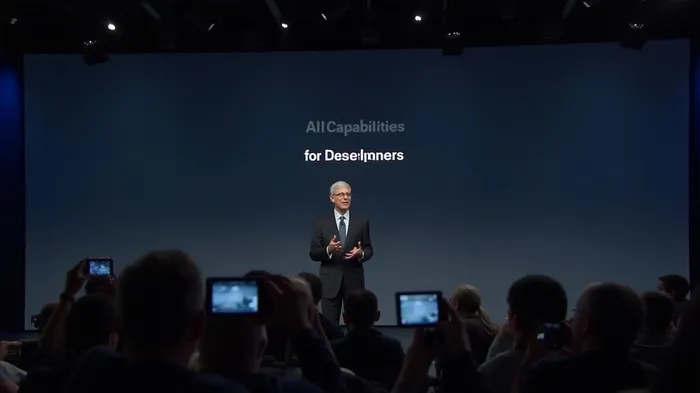Apple to Unleash AI Capabilities for Developers at WWDC
Apple is reportedly preparing to unveil a significant move in the realm of artificial intelligence by opening up access to its large language models for external developers. According to insiders, the tech giant is developing a software development kit (SDK) and related frameworks that will enable developers to build AI functionalities based on Apple's advanced language models. This initiative is expected to be announced at the upcoming Worldwide Developers Conference (WWDC) on June 9.
The move is seen as a strategic effort to stimulate the creation of new applications and enhance the appeal of Apple's devices. By allowing third-party developers to leverage its AI models, AppleAAPL-- aims to foster innovation and attract more developers to its ecosystem. This could potentially lead to a surge in AI-driven applications, further solidifying Apple's position in the competitive tech landscape.
This decision to open up its AI capabilities comes at a time when the tech industry is witnessing rapid advancements in AI technology. Companies are increasingly recognizing the importance of AI in driving innovation and improving user experiences. By providing developers with access to its large language models, Apple is positioning itself as a leader in the AI space, encouraging the development of cutting-edge applications that can leverage the power of AI.
This development is part of a broader trend in the tech industry where companies are increasingly collaborating with external developers to drive innovation. By opening up its AI capabilities, Apple is not only fostering a more collaborative environment but also ensuring that its devices remain at the forefront of technological advancements. This move is likely to have a significant impact on the AI landscape, as it will enable developers to create more sophisticated and intelligent applications that can enhance user experiences across various platforms.
Initially, Apple will allow developers to integrate Apple Intelligence's technology into specific functions or entire applications. The focus will be on lightweight models that run locally on devices, rather than larger cloud-based AI models that require server dependencies. This approach ensures that the AI functionalities are efficient and responsive, providing a seamless user experience.
Apple's broader strategy in the generative AI field includes efforts to catch up with competitors. While Apple launched Apple Intelligence last year, its initial functionalities have not been widely adopted, and other AI platforms remain more robust. By opening its technology to developers, Apple is betting that they will create more attractive use cases, making this initiative a potential highlight of the upcoming WWDC.
In addition to opening AI capabilities to developers, Apple is planning to introduce an AI-driven battery management mode for consumers. The company is also developing a health application that integrates AI, featuring a virtual health coach. However, this software is expected to be released in 2026.
Apple's ultimate goal is to replicate the success of the App Store by transforming its operating system into the world's largest AI software platform. The surge in applications could also bring economic benefits, potentially increasing Apple's revenue from app subscriptions. This move underscores Apple's commitment to leveraging AI to enhance its ecosystem and maintain its competitive edge in the tech industry.

Stay ahead with real-time Wall Street scoops.
Latest Articles
Stay ahead of the market.
Get curated U.S. market news, insights and key dates delivered to your inbox.

Comments
No comments yet